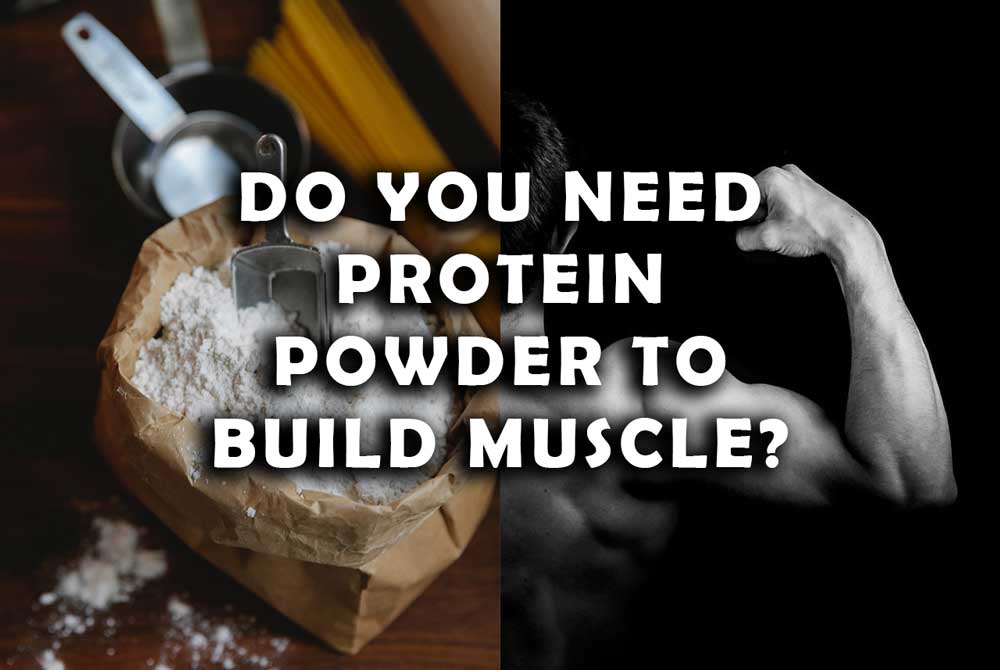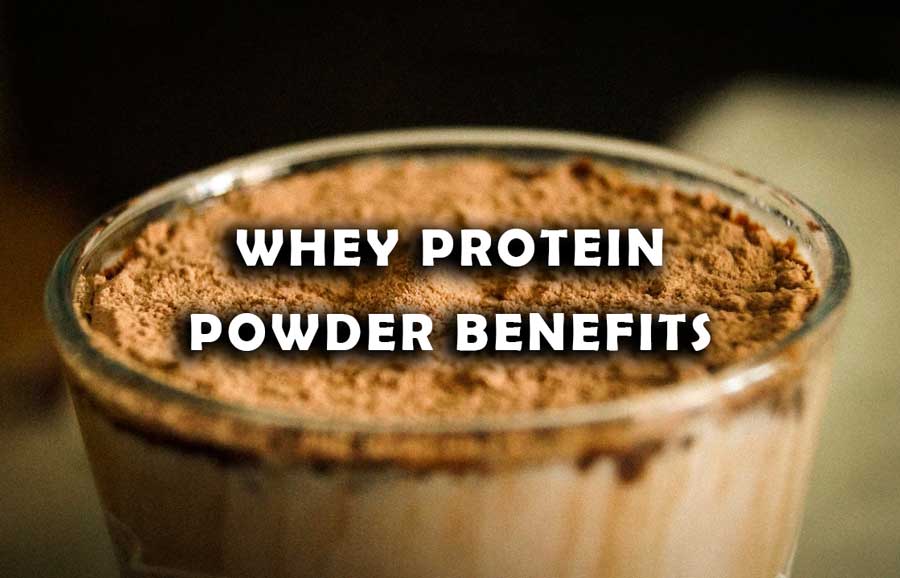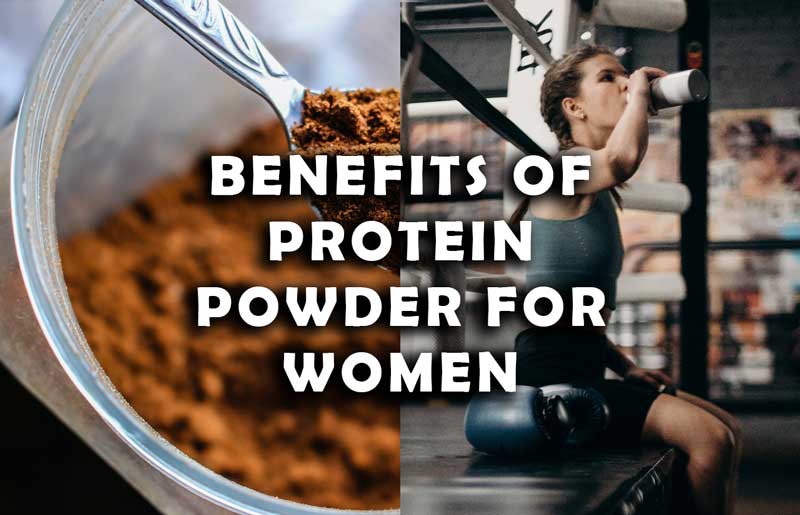Protein powder has become one of the most common supplements for gym goers, body builders and other health conscious persons. Due to its benefits, it has gain popularity very quickly. Protein powder is also a go to supplement for many to help them lose weight. Yes, along with building muscles, protein powder can help you lose weight as well. In this article, we will discuss the benefits of using protein powder for weight loss and provide tips on how to use it effectively.
Benefits of Protein Powder for Weight Loss
Let’s first discuss the benefits of protein powder for weight loss.
1) Burns Calories (Increased Metabolism) – Protein powder helps in muscle gain. It is known that muscle gain also helps in burning more fat. This happens because it increases body metabolism. More muscles you have, more fat you will burn, while working out or while at rest.
2) Reduces Hunger – Taking protein powder reduces hunger. It is known to make you feel fuller after having a protein powder shake. This can largely help you in reducing your overall calories and can aid in reducing your weight.
3) Meal Replacement – Protein powders are consumed as shakes. This can be a great and convenient meal replacement. It is very easy to prepare and very convenient for busy individuals. It can be consumed as a meal replacement or snack, making it an excellent choice for people who struggle with meal planning or cooking.
How Much Protein Powder Should You Consume for Weight Loss?
The amount of protein powder you should consume for weight loss depends on various factors, including your age, gender, weight, physical activity level, and weight loss goals. It also depends on daily calories you having per day.
When it comes to using protein powder for weight loss, it’s essential to consider the right amount to consume. Consuming too much protein powder can lead to weight gain. While consuming too little can hinder weight loss progress and can result in more fat gain.
Surprisingly, if you use protein powder correctly, you can gain weight in a healthy way. Read more about it here:
How to Use Protein Powder for Weight Gain?
As a standard guild line, Go for 0.8-1.2 grams of protein per kilogramme of body weight per day. Thus, a 70-kilogram person should try to eat 56–84 grams of protein per day.
Consuming more protein powder can actually increase your body weight, as excess protein is converted to fat and stored in the body. If consuming high amount of protein powder is exceeded your daily calories intake required for weight loss, it can result in unnecessary wright gain. To maintain this always keep your calories intake less than calories burnt per day.
On the other hand, if you are consuming very less protein powder, it can reduce you muscle gain. If your calories intake if higher than needed it can result in weight gain due to other sugary foods you might be taking.
It’s also important to choose a high-quality protein powder that fits your dietary needs. Some protein powders contain added sugars or artificial sweeteners, which can hinder weight loss progress. Opt for protein powders that are low in sugar, carbohydrates, and calories, and contain natural ingredients. It is best to consume less calories than you burn per day. And also, increase your protein powder quantity in your diet for better and faster weight loss results.
Protein Powder and Exercise: Fat Killing Combo

Taking protein powder and exercising is one of the best practises to burn fat and help weight loss. It is the best combination for body recompositing as well.
Taking protein powder will help increase your protein intake and can reduce other macros and hence, resulting in less carbohydrates and weight loss. At the same time, if you exercise, it will increase your calories burnt for the day and will help you boost your wight loss.
When done this effectively, the weight loss is in the form of fat burn and fat loss, one of the best benefits.
Types of Protein Powder for Weight Loss
While choosing protein powder for weight loss, it is best to choose protein powder isolate. Protein powder isolates contain high protein ratio and very less to no amount of carbohydrates and fats. This reduces calories in servings of the protein powder.
- Whey Protein Powder: Whey protein powder is one of the most popular types of protein powder, and for good reason. It’s easily absorbed by the body, making it an excellent choice for post-workout recovery. Whey protein powder can also increase satiety and boost metabolism, making it a valuable addition to a weight loss program.
- Casein Protein Powder: Casein protein powder is another type of milk protein powder, and it’s slower to digest than whey protein powder. It’s an excellent option for night-time use, as it can help keep you feeling full throughout the night and prevent late-night snacking.
- Plant-Based Protein Powder: Plant-based protein powders are an excellent option for individuals who follow a vegetarian or vegan diet. They comes from sources such as peas, brown rice, and hemp, and provide all the necessary amino acids needed for muscle growth and maintenance.
- Egg Protein Powder: Egg protein powder is an excellent option for individuals who have a lactose intolerance or prefer to avoid dairy products. It’s rich in amino acids and can boost metabolism and increase satiety.
- Soy Protein Powder: Soy protein powder is derived from soybeans and is a complete protein source. It’s an excellent option for individuals who follow a vegetarian or vegan diet, and it can increase satiety and boost metabolism.
When to Consume Protein Powder for Weight Loss?
Knowing when to consume protein powder for weight loss can be just as important as knowing how much to consume. Consuming protein powder at the right time can help support weight loss goals and optimize muscle growth and recovery.
- Before or After Exercise: Consuming protein powder before or after exercise can help support muscle growth and recovery. Consuming protein before exercise can help provide the body with the necessary nutrients needed for optimal performance. While consuming protein after exercise can help support muscle recovery and growth.
Note: Exercising burns more calories and increases your calories burnt per day. Having protein powder along with good exercise is a very impactful combo for weight loss. - Between Meals: Consuming protein powder between meals can help keep you feeling full and prevent overeating. Protein is a highly satiating macronutrient, and consuming protein between meals can help regulate appetite and prevent snacking on unhealthy foods. This can be very good snack replacement as well.
- In the Morning: Consuming protein powder in the morning can help boost metabolism and support weight loss goals. Protein can help keep you feeling full throughout the morning, preventing overeating at lunchtime.
- Before Bed: Consuming protein powder before bed can help prevent muscle breakdown and support muscle growth and recovery throughout the night. Casein protein powder is an excellent option for night-time use, as it’s slow to digest and can help keep you feeling full throughout the night.
It’s important to note that consuming protein powder alone is not a guaranteed way to lose weight. Take protein powder in conjunction with a balanced diet and regular exercise to achieve weight loss goals. It’s also essential to choose a high-quality protein powder that fits your dietary needs and preferences.
How to consume Protein Powder into Your Diet for Weight Loss?
It is important to note that, while consuming protein powder with other ingredients, your are not spiking your calories too much. This can hinder your calories goal for the day and result in weight gain.
- Smoothies: One of the easiest ways to incorporate protein powder into your diet is by adding it to smoothies. You can add a scoop of protein powder to your favorite smoothie recipe or create your own protein-packed smoothie by blending protein powder with fruits, vegetables, and almond milk or water.
- Oatmeal: Adding protein powder to oatmeal is another great way to increase protein intake. Simply stir in a scoop of protein powder to your bowl of oatmeal to create a protein-packed breakfast that will keep you feeling full and satisfied throughout the morning.
- Baked Goods: You can also add protein powder to baked goods, such as muffins and pancakes, to create a healthier and more filling version of your favorite treats. Replace some of the flour in your recipe with protein powder to increase the protein content of your baked goods.
- Yogurt: Adding protein powder to yogurt is another easy way to increase protein intake. Simply mix a scoop of protein powder into a container of yogurt for a protein-packed snack.
- Energy Bars: You can also make your own protein bars at home by mixing protein powder with nuts, seeds, and dried fruit. These homemade protein bars are a great snack to have on hand when you need a quick and filling snack.
Potential Side Effects of Using Protein Powder for Weight Loss
If you are going all in on protein powders, thinking it is going to help you in your weight loss journey, you might be wrong. Anything in moderation works best, if overdone, it does come with side effects that can be very harmful.
Here are some side effects of consuming too much protein than required by your body.
- Digestive Issues
- Kidney Damage
- Protein Powder Acne
- Dehydration
- Allergic Reactions
- Sore throat

You might also like: How To Use Protein Powder For Weight Gain?
Conclusion
When used properly, protein powder is an excellent weight-loss supplement. You may speed up your metabolism, lengthen feelings of fullness, and encourage the development and maintenance of muscle mass by including protein powder into your diet and workout regimen. But it’s crucial to pick a high-quality protein powder that suits your nutritional requirements and to use it sparingly.
Always remember to keep your calories counts in check and never over use/consume anything.





